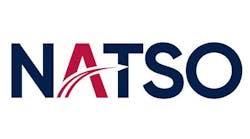Education, communication, and a good sense of what you are doing all played a role in the City of Seattle being named the top Government Green Fleet for 2010 by 100 Best Fleets.
“[The award] lends credibility to our program,” says Chris Wiley, green fleet coordinator for Seattle. “You're evaluated by your peers; it's about establishing our credibility and it helps us sell [our ideas] within the city departments.”
The contest, open to all federal, state and local government fleets in North America, honors the fleet that “shows exemplary accomplishments against a comprehensive set of criteria tailored around the challenges and requirements of the government fleet manager.”
Wiley is the city's first green fleet coordinator, filling the position first created in June 2008. Among his duties are working with the various city departments to fulfill — and even in some cases create — an action plan to meet sustainability goals. He describes his role as more than just a fleet purchasing manager.
“It's a unique feature of our department…at an operational level,” he says of advising city departments. “It's much broader than going in and asking what vehicles [they] need this year and then buying them.”
Wiley says part of his role is to assist departments, by meeting bimonthly with each department's fleet coordinator, on ways to more efficiently use vehicles and personnel. This includes route planning and developing ways to maximize hours within the city's four-day, 10-hr. workdays.
“There has been a fuel reduction [due to the four-day workweek],” says Wiley. “If the crew can stay that extra time on that last day and not have to go back that extra day for cleanup, we're saving trips.”
THE ESSENTIALS
The Seattle fleet includes about 4,000 vehicles — everything from “sub-compact” electric vehicles to Class 8 trucks. The success to implementing a green program for a varied fleet of that size all boils down to communication and support, Wiley says.
“I think keeping people informed, [providing] education and outreach are really important,” he says, “which also gets people giving you ideas back. We had [a tree inspector] come to us and ask us to install a bike rack on his vehicle so he could park his truck and ride his bike” around the city during his workday.
The city has worked hard since the first green fleet action plan was developed in 2003 to reach its current status. Whenever possible, the fleet is “rightsizing” its vehicles. “We used to have a lot of our crew chiefs cruising around in F-350 trucks; now they're cruising around in a [Toyota] Prius because they don't carry tools” or a need for a larger truck. The city is also working on a contract that will supply it with over 1 million gals. of B20 biodiesel made from a vegetable-oil base. Seattle had been running a soy-based B40 mixture, but Wiley says the cost premium for the fuel did not provide the necessary bang for the buck from a greenhouse gas reduction standpoint that the city will receive from a B20 made from vegetable oil.
Annual petroleum usage has been reduced by more than 100,000 gals. due to the inclusion of electric vehicles like the Prius. But there's also been a shift to smaller vehicles when possible, such as electricians moving from MT-45 walk-in vans to Transit Connects, and purchases like inverters to run power take-off equipment rather than using diesel fuel.
Seattle is also purchasing diesel-electric hybrids whenever possible and has already added 12 to the city's public utility fleet. “We've made the operational decision to pay that premium,” Wiley says.
In the end, for Wiley, it comes down to communication and delivering the services the customers, in this case other city departments and the residents of Seattle, need in the most efficient way possible. “[Mayor Mike McGinn] has always supported these things and the public supports us,” Wiley says.


